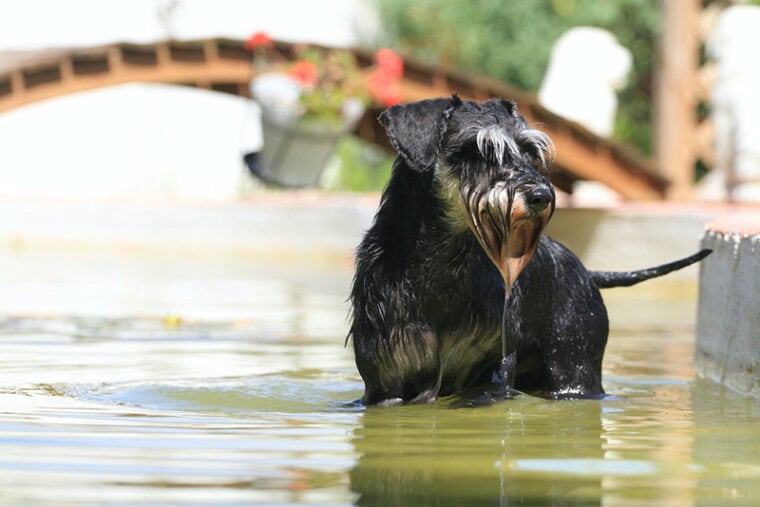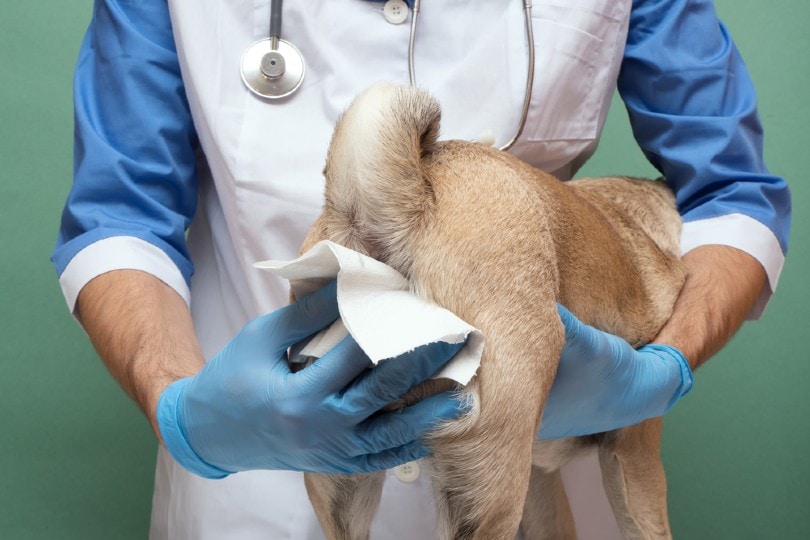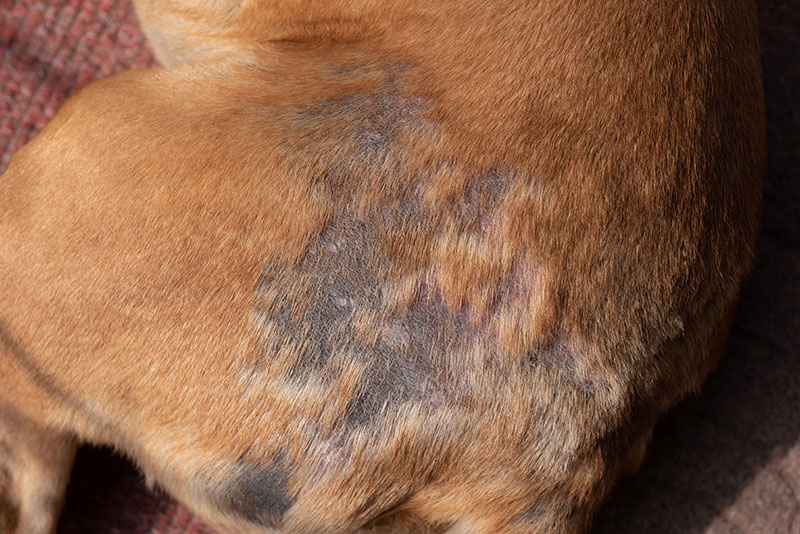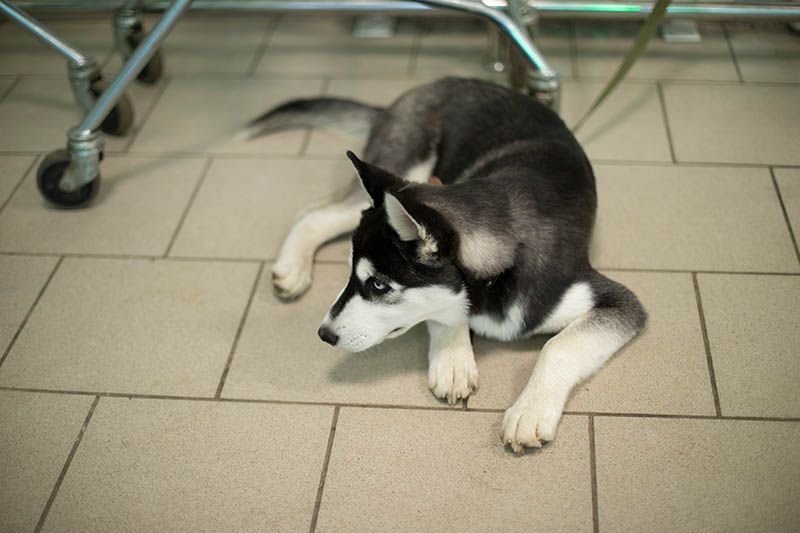
Anyone who owns a dog has smelled that musky, unpleasant odor when their dog has been wet. It’s enough to curl your nose, but most of us pass it off as a natural thing. Have you ever asked why dogs smell so bad when wet? It’s more than simply being a dog. Let’s take a look below at 10 reasons why dogs smell bad when wet so you can better understand your dog and its needs.
The 10 Reasons Why Do Dogs Smell Bad When Wet
1. Microorganisms
According to a British chemistry teacher by the name of Andy Brunning, the smell of wet dogs comes from microorganisms living on our dog’s skin. On his blog, Compound Interest, he says these yeast and bacteria leave volatile organic compounds behind. When your dog gets wet and moisture evaporates, it carries these compounds with it, and the attached odor. Of course, Brunning is quick to point out that lots of research hasn’t been done on this subject and that more is required.

2. A Dog’s Natural Oils
Our dogs need a way to protect their coats. Like with humans, it’s natural oils on their skin that do this. Unfortunately, when these oils are released and mixed with water it can cause an unpleasant odor. This is often described as a musty or damp odor that lingers even after you’ve dried your dog off completely.
3. Anal Glands
Anal glands are two small sacs found on a dog’s anus. These glands produce a pungent-smelling liquid. This can be released when dogs are anxious or frightened. We all know this can happen during bathing. When this liquid gets wet, the odor produced can smell even worse.

4. Dead Skin Cells and Hair
Like us, dogs naturally shed skin cells and hair. Unfortunately, when your dog gets wet, these cells and dead hair can cause an unwanted sour or musty smell. These shed skin cells can also get trapped in your dog’s wet fur. This can make the odor worse.
5. The Water Source
There are some dogs out there that love to swim. While not everyone has a pool available, lots of dogs spend time swimming in creeks, lakes, rivers, and ponds. We may not think too much about allowing our pets in this water, but they can come into contact with bacteria, algae, and other things in the water. These unknown things in the water can cause odor on your dog. If you allow your dog to swim in these types of areas, it’s important to clean them afterward to keep them healthy.

6. Diet
Your dog’s diet could contribute to stinky skin issues and tummy problems if your dog has a food allergy or intolerance. This can add to the wet dog smell. Fish oil supplements, which have numerous health benefits, can also lead to a fishy smell from your dog. If you have any concerns that diet may be contributing to your dog’s odor, contact your veterinarian for assistance.
7. Skin Infections
Dogs that live in damp areas or spend a lot of time in the water can have bacterial or fungal infections. This is especially true for dogs with double coats or thick fur. These infections can cause unpleasant odors, especially when a dog is wet. Keeping your dog clean and drying them completely is important to prevent these types of infections. If you think your dog has a skin infection, reach out to your veterinarian.

8. Bad Hygiene
When a dog doesn’t get a proper hygiene routine, odors can be an issue. Dogs need regular baths, nail trims, ear cleanings, and brushings. This helps keep your dog’s odor at a minimum. You’ll also find that dogs are simply happier and often healthier when they are well cared for and kept clean. Always remember, however, when bathing your dog, to dry them completely to avoid other issues.
9. It’s the Breed
Yes, certain dog breeds are known to smell more than others. This usually happens to breeds with oilier skin, double and dense coats, and those with wrinkles and skin folds. Some of these breeds include Huskies, Retrievers, Shar-Peis, and Pugs. Keep this in mind when choosing a breed for your home.

10. Ear Infections
Just like certain breeds are more prone to odors, the same can be said for ear infections. When you bathe your flop-eared dog, you may notice a heavy odor. This can be coming from yeast or bacterial infections in their ears. If you notice these odors, get your dog to a veterinarian for a checkup.
Conclusion
As you can see, there are several reasons your dog may smell bad when wet. While several of these causes can be taken care of by simply improving the level of care you provide your dog, others may require medical help. If you feel your dog is smelling more foul than usual, schedule a trip to the veterinarian so they can make sure everything is good healthwise.
Featured Image Credit: Da Silva Emmanuelle, Shutterstock







